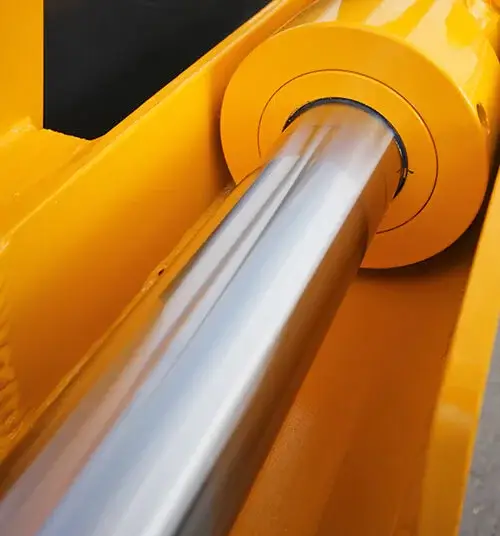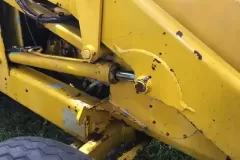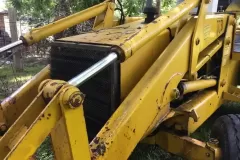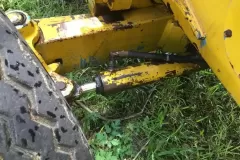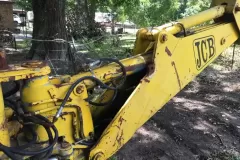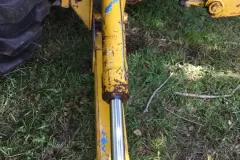 24 hour on-site hydraulic repair, replacement, hose & fitting services.
24 hour on-site hydraulic repair, replacement, hose & fitting services. 24 hour on-site hydraulic repair, replacement, hose & fitting services.
24 hour on-site hydraulic repair, replacement, hose & fitting services.
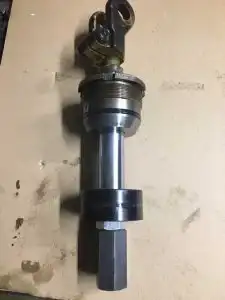
Hydraulic cylinder failure will bring your entire operation to a standstill. Don’t let hydraulics problems sideline your machinery any longer than they have to. We give very qualified Hydraulic Cylinder repair and rebuild services to any size machinery.
There are any number of things which might cause a component to perform poorly, or to go out of service altogether, and when this happens it might very well shut down your whole operation. The piston or the piston rod might become damaged, you might have leakage out of either the cap or the head, or any of the sliding rings and seals might have failed. Since the highly pressurized fluid is what really drives the mechanism, it is very possible that the pressure alone can be responsible for causing parts to fail.
Regardless of what triggers any kind of failure with your hydraulic cylinders, you will want it repaired and back in service as quickly as possible. In such events, contact Sapphire Hydraulics, so that our skilled specialists can promptly come to your location, diagnose the issue, and make whatever repairs are necessary. In most situations, worn parts can be quickly replaced and any needed repairs can be promptly carried out so that you can get back to work, confident that your equipment will perform optimally.We take pride in making sure safety is our first priority while working on-site with big equipment, under high torque, using strength and force during braking at the joint. Contact Sapphire Hydraulics for rapid and reliable cylinder-repair service, delivered by experienced professionals.
We’re equipped to provide on-site repair in Houston, TX and can tackle most problems with quickness, to get your system back up and running.
We are experts at repairing cylinders and can also repair any other component of your hydraulic system as well. If there are parts that require replacement, our service technician will likely have the needed parts in the mobile repair shop which visits your location, so there won’t be any delays waiting for the necessary parts. You will also have fewer breakdowns if you take advantage of our regular service and maintenance program, ensuring your machinery receives regular attention, and any potential issues can be identified quickly before they become major problems.
All our service technicians have completed background checks by the Transportation and Safety Administration (TSA) and carry the Transportation Worker Identification Credential (TWIC). For replacements, we also sell exclusive American cylinders, restoring critical function and ensuring sustained reliability.
If you need special hydraulics parts manufactured, we can provide that service as well. We have in-house design engineers who can work with you to design and manufacture whatever unique component might be needed to keep your machinery operating. By collaborating with our engineers, your exact specifications can be incorporated into a brand-new custom hydraulics part that will be a perfect fit for your equipment. We aim to be a full-service hydraulics service, repair, and build company for all of our clients.
Our scope of repair in Houston, TX spans all necessary components of your fluid power system. From cracked cylinders to leaks and issues with cavitation, we troubleshoot to find the problem, then take steps to repair it. We work quickly and use proven OEM parts to remediate issues and restore the function to your system.
We guarantee your cylinders will be thoroughly repaired, tested and brought back up to OEM standards.
The Sapphire Hydraulics team takes pride in their extensive knowledge and experience repairing and re-manufacturing cylinders. Ranging from small machinery to heavy equipment. We use state-of-the-art equipment to ensure thorough testing.
Our scope of repairs include:
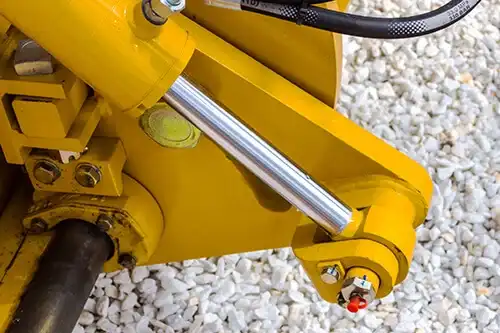
In our 13 years of experience, we have had the opportunity to work on virtually every kind of equipment associated with hydraulics, and in essentially every industry which uses hydraulics-based machinery. We’ve been involved in the agriculture, manufacturing, oil and gas, construction, defense, engineering, automotive, earth-moving, and marine industries, and we’re comfortable working in each one of these sectors.
Some of the specific equipment and parts we service, ranges from hydraulic hoses, hose protectors, fluid, adapters, couplings, and hydraulic hose fittings, and it extends to include everything which impacts the hydraulics systems of your equipment. When anything at all goes wrong with your system, you should contact Sapphire Hydraulics, because any improper repairs that are performed will likely end up causing larger problems, and then your repair bills will escalate further.
Our breadth of experience touches all major hydraulics systems. Our team brings specialized knowledge of even complex circuits to every job site to deliver unparalleled results that put your systems back on line. Call us for:
Hydraulic cylinders derive their tremendous power from fluid which is under pressure. The hydraulic cylinders consist of a barrel which houses a piston rod that moves back and forth. On one end of the barrel is the head, and the other end of the barrel is the bottom, and the cylinder serves as a kind of motor to the whole system. A hydraulic pump delivers a consistent flow of oil into the cylinder, and this causes the piston to move back and forth, thus generating the necessary power.
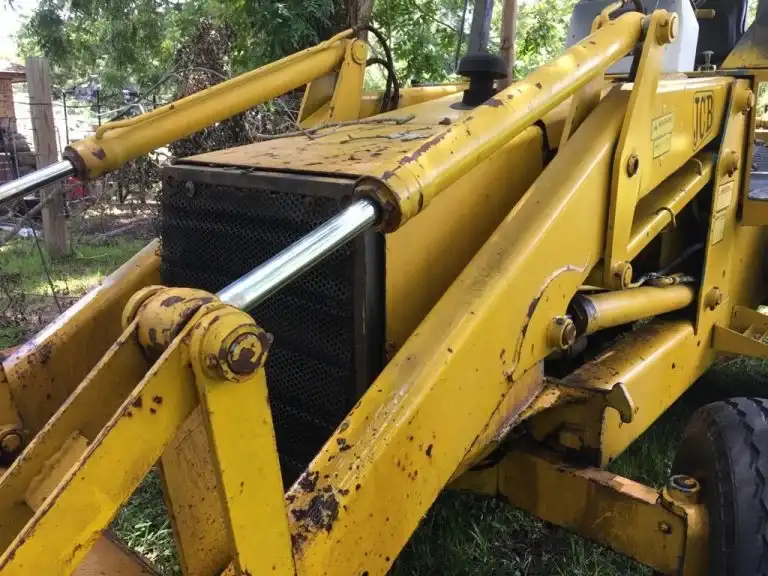
There are a few basic types of hydraulic cylinders which are used by heavy equipment and industry, and the specific type of each is generally used in accordance with the type of machinery it services.
A single-acting cylinder has only one access point into the cylinder, and this has a heavy influence on its performance rate.
A double-acting cylinder has two ports, one of which is positioned at the head and the other at the piston rod. This type has a definite advantage over single-acting cylinders, because both ports are used when retracting the rod.
A non-differential cylinder also has two ports and differs from the double-acting version in that the rod extends from both ends, which makes it faster and more stable.
A telescoping cylinder has a very compact structure, and controls the flow of fluid using either one or two ports, all of which are contained within the housing of the cylinder.
Tie-Rod Cylinders
Most industrial and high-performance cylinders are made with tie-rod cylinders and are generally compliant with the NFPA specifications. The cylinder-component is protected by rods that pass through holes on the ends of the end caps at either end of the tube. The end caps of the barrel are protected by threaded nuts at the end of each tie rod. Static seals on the surface of the barrel or end cap help to avoid leakage. There are many variants to this design, including use of over four rods in a cylinder and long bolts in one of the end caps, which can then be threaded into tapped holes in the cap.
Welded Cylinders
These cylinders are fitted with the end-flanges that are welded to the barrel, and an end-cap on each side. The bolts then slip through holes on each end cap and thread into tapped holes on every end flanges. This is lighter and lightweight than the traditional roller bond, which explains why welded cylinders are commonly used in mobile equipment.
Ram Cylinders
This is a special type of single-acting component that has a rod with an OD diameter equal to that of the piston. The ram cylinder must be used primarily for jacking purposes because of the absence of internal components to remove the rod. Ram cylinders are often also called dip cylinders and are most widely used as short-run cylinders. Most do not use return springs but, in order to remove the piston rod and instead rely upon gravity or the load.
The flange mount is a straight-line mounting method, that is extremely helpful for the appropriate transfer of force. The rectangular head flange, square head flange and a larger and more spacious rectangular head, each with their own mounting holes, are often available in three sizes. The choice of a flange mount partly depends on the strain or tensions of the piston rod resulting from the large force applied to the load.
With side-mounted cylinders, the force is not absorbed along the center line. In these mountings, there are lugs on the end closure, and some models have side-tapped holes for flush mounting. Due to the fact that the force isn’t absorbed along the center line in these mounts, a turning motion is produced as the component moves the load. If the cylinders are not well protected by the system or the load is not well controlled, then the rod and piston bearings are subjected to side loads.
Centerline lug-mounts absorb forces through the centerline; they are the least common fixed assembly type. The lugs need to be fixed to the system when used in applications which produce greater stress, or under conditions of sudden shock.
Pivot mounts are best used when the actuated load traverses an arc. Pivot mount cylinders can be used with maximum pressure in tungsten or thrust applications, except for the fact that the column strength of piston rod is limited by long stroke cylinders in thrust applications.
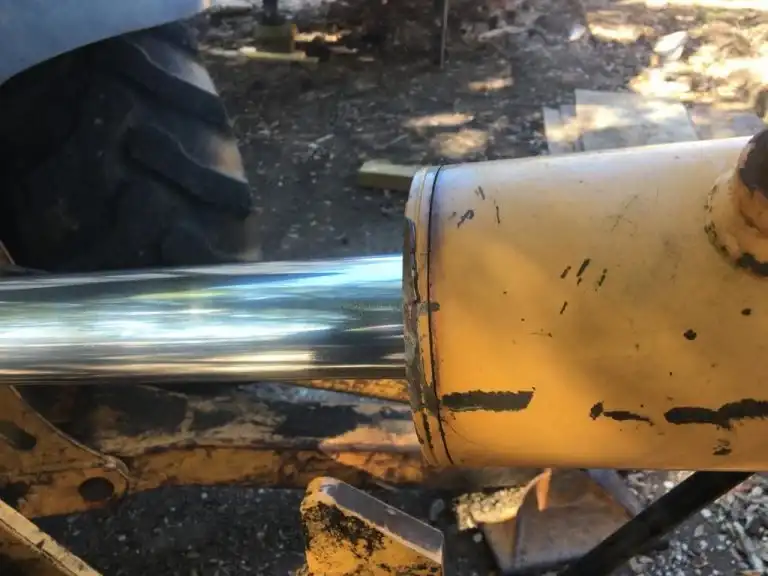
When it comes to the functionality of a hydraulic cylinder, there are some important measurements that always need to be kept in mind. These are the stroke, the bore diameter, and the rod diameter.
The stroke is the measurement of the length which the piston rod can move in and out. This is typically measured by subtracting the total compressed length of the cylinder from the total length when the component is extended.
The bore diameter is the overall width of the cylinder. The inner diameter of the cylinder housing is also equal to the diameter of the piston within the cylinder. Bore size determines how much force a cylinder can generate, with larger bore sizes providing more force slowly, and smaller bore sizes moving faster but generating less force overall.
The rod diameter will tell you how much load the piston can handle before it buckles. Larger diameter rods typically can handle larger loads, when compared to smaller rods, and will typically move slower as well.
Don’t let a faulty component bring your fluid power system to a standstill. Contact the expert team at Sapphire Hydraulics today at 713-331-1131 and let us bring a swift resolution to your problem.
Whenever you need any kind of cylinder service, please contact us at Sapphire Hydraulics. We make a point of responding promptly to every call we get because we understand how important your time is, and how critical your equipment is to your operation. If you need to have unique hydraulic parts customized for your business, our design experts can work with you to accomplish that, and we’ll manufacture the part ourselves, so as to shorten the build cycle. Contact us today for all your equipment service needs and let us help keep your business running smoothly.
Our very qualified and experienced technicians on-site, 24 hours a day, 7 days a week, any time of the day or night, who will diagnose the problem and repair it to your satisfaction.
No matter the problem, no matter the application, we promise results.
WE DO NOT PROVIDE PUMP SERVICES
